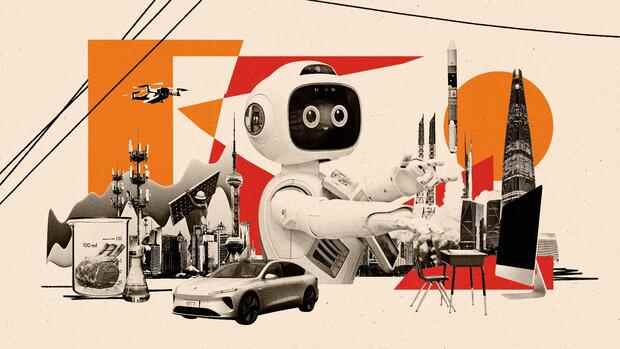Tokyo Looking at the world rankings of car manufacturers must hurt Volkswagen. By 2020, the Wolfsburg-based company was able to hold the prestigious title of the largest volume manufacturer for five years in a row. Since then, the old number one has been the new number one: Toyota. And Volkswagen’s backlog is growing.
Toyota navigates through the pandemic and chip crisis more successfully than many others. The Japanese group is currently showing the car world how crisis resilience works through cooperation with suppliers. Due to supply chain problems, VW sold just over three million cars in the first five months of 2022 – around 25 percent less than in the previous year.
The world market leader from Japan, on the other hand, increased its sales by 2.1 percent to 4.2 million vehicles. This means that Toyota could be the only manufacturer to sell more than ten million cars this year. The secret of the Japanese is that the inventors of just-in-time production have been making their organization more crisis-proof for 15 years. A key to success: Thanks to its close relationships with suppliers, the car manufacturer can look deep into the supply chain and compensate for bottlenecks better than many of its rivals.
Japanese suppliers say they share detailed information about their own supplier network with Toyota, actually trade secrets. One reason for this openness is that Toyota does not squeeze suppliers as hard as it can, but rather sees them as partners who are hard to challenge, but also promote when necessary – and who are helped in times of need.
Top jobs of the day
Find the best jobs now and
be notified by email.
Nevertheless, Toyota demands plenty. So it is welcomed that suppliers keep larger stocks for key components, so that production does not stop even in the event of short-term problems.
If there is a problem, the major customer not only hits the table, sometimes he just lends a hand. Whether the partners like it or not, Toyota sometimes sends consultants to the factories to increase productivity or to solve problems.
Driven by natural disasters
Then again, Toyota, but also the other Japanese car manufacturers, provide concrete help in emergencies. After a major fire at a factory owned by chip supplier Renesas, for example, the manufacturers sent dozens of engineers to help rebuild production.
The CEO of the world’s largest car manufacturer relies on an extensive network.
(Photo: AP)
This relationship is a cultural peculiarity: Toyota has set up a company association, Keiretsu in Japanese, in which suppliers develop many key technologies. Among them are key companies such as Denso and Aisin Seiki. Other large corporations have traditionally taken a similar approach.
Sometimes there is strong government in the association. For example, Toyota has concentrated duplicating product portfolios from different suppliers over the past ten years. The corporations, which are increasingly looking for customers outside of Toyota, should become more competitive as a result.
However, the close relationships also mean that the companies are more obligated to give Toyota insight into their own structures. And this obligation extends to second-, third-, fourth- and fifth-tier suppliers, especially in hierarchical Japan. This creates peer pressure.
Read another issue of our Asia Technonomics column here
However, Toyota’s desire to penetrate the supply chain did not come automatically, but grew with natural disasters. In 2007, an earthquake in the structurally weak region of Niigata paralyzed Japan’s entire auto industry for weeks. The reason: the factory of a manufacturer of piston rings that supplied all engine manufacturers was also damaged.
In 2011, production was hit hard by an earthquake, tsunami and nuclear disaster in Japan and a flood disaster in Thailand. And with each disaster, Toyota delved deeper into its own supply chain to identify possible monopolists and bottlenecks down below.
In addition, new sources were developed and components were simplified and standardized as far as possible in order to be able to move them to other suppliers more quickly. At the same time, the fact that the supplier Denso itself is the fifth-largest manufacturer of chips for cars has not hurt in the current chip crisis. Supposedly old-fashioned keiretsu structures, in which car manufacturers work closely with suppliers, suddenly seem ultra-modern in the new world of crisis.
More: “We need radical steps” – Audi wants to halve factory costs
